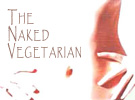Human evolution and diet
Two health and diet studies

First this This article from Fuchsia Shockz
"Human evolution can't cope with fast food"
Calorie-packed fast food encourages over-eating and weight gain because it is out of step with human evolution, scientists have said.
They pointed out that humans are designed for conditions in which food is relatively scarce and low in energy.
But fast food from take-aways and convenience stores is typically energy dense. You do not need to eat much of it to consume a lot of calories.
The result is people accidentally over-eat without feeling particularly full.
Nutrition experts Professor Andrew Prentice and Dr Susan Jebb highlighted the problem by combining British and African diet study data with information on the ingredients in fast food.
Professor Prentice, head of the Medical Research Council's International Nutrition Group at the London School of Hygiene and Tropical Medicine, said: "We all possess a weak innate ability to recognise foods with a high energy density. We tend to assess food intake by the size of the portion, yet a fast food meal contains many more calories than a similar-sized portion of a healthy meal.
"Since the dawn of agriculture, the systems regulating human appetite have evolved for the low energy diet still being consumed in rural areas of the developing world where obesity is almost non-existent.
"Our bodies were never designed to cope with the very energy dense foods consumed in the West and this is contributing to a major rise in obesity."
The World Health Organisation estimates there are 300 million obese people worldwide.
In England, obesity rates have trebled in the past 25 years. Experts predict that by the end of the decade three in 10 UK adults will be obese.
___________________________________________
Next this Report on long term diet and health study from Europe from the The Naked Scientists.com












<< Home